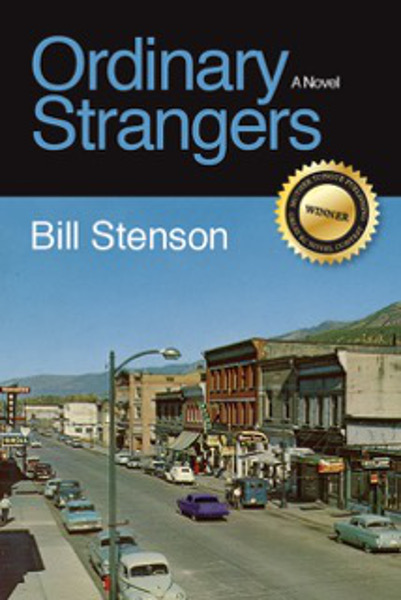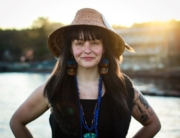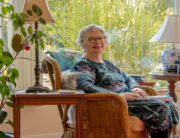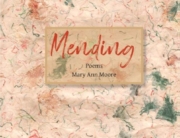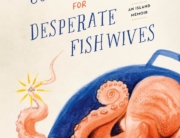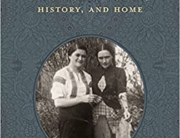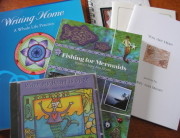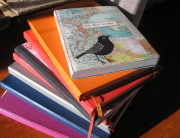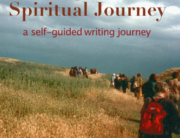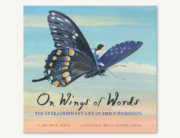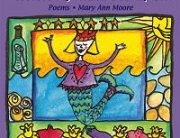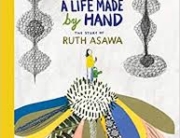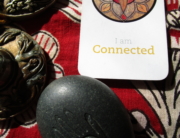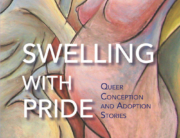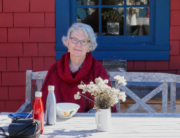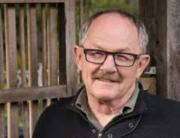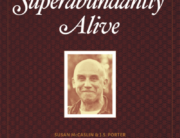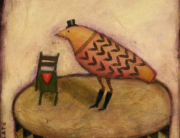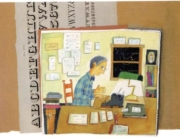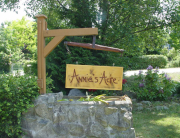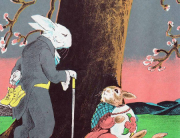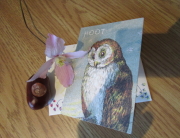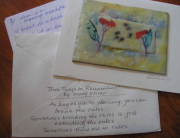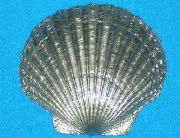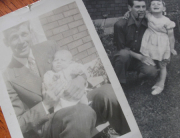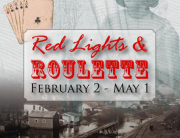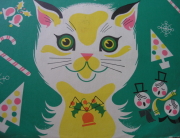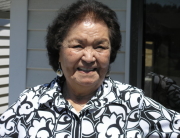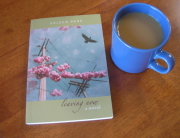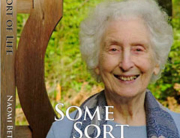Bill Stenson took many risks in his novel, Ordinary Strangers, and what is so miraculous about the book is the lack of judgment I felt towards the characters no matter what their behaviour. Well, there many have been a couple of instances when I was riled by a character’s tendencies but what good novelists can do is help lead their characters, and their readers, towards understanding and even forgiveness.
Ordinary Strangers by Bill Stenson is the winner of the 4th Great BC Novel Contest with Mother Tongue Publishing on Salt Spring Island. While the book may be described as being about a child abduction, Della and Sage Howard weren’t looking to take someone’s child on their way to Fernie, B.C. in 1971. The little girl, about two years old, was lost in the forest near a fair on a hot August day in Hope, B.C. Della and Sage stopped for a break, lost their dog, and found the crying toddler.
They named her Stacey Emerald Howard and the continuing story is not about a search for a lost child or hiding from authorities. Della thought about calling the authorities but not for long. She liked thinking of herself as Mommy. “Once the Howards invested in a winter coat, they no longer mentioned finding the authorities and returning the little girl to wherever she had come from – wherever the word they both used consistently instead of whoever.”
Sage worked for a mine and smoked dope. In fact, “others in Fernie liked to hang around the Howard house on weekends because they knew Sage was always well-supplied.”
Della began babysitting children in their home and as she kept a journal and records of everything that happened, “she documented every one of them and devoted two or three pages in her family album to people like Edwin the red-headed baby or Laura the little French girl who wanted to grow up to be an Irish dancer.” Stacey found a childhood friend, Tommy, that way. Later, when she started school, Stacey became friends with Amber and another valuable ally was Della’s sister Sadie.
Maybe because Della didn’t know or didn’t voice any objections if she did, I didn’t feel judgmental about Sage’s behaviour when he became involved with Selma, a woman who worked at a bar and lived upstairs above it. As the narrator describes him: “Sage knew he had holes in his moral fiber. He always felt dissatisfied and could never stick with one thing.”
Sage “was addicted to restlessness, a man who followed a crooked path and didn’t know what to do about it.” When Della and Stacey began going to church, Sage said “he would rather for a walk along the river, which he did the first Sunday they were both at church.”
Molly and Hart Ferguson live next door to the house the Howards rented and later managed to buy. Sage dubbed Molly, Molly the Nose, and she was the one who was able to offer advice to the new parents.
Hart built the replica of a fort in their back yard and called it Fort Whoop. It was a place where Hart and Sage could smoke a couple of joints and where Stacey could go when she needed to.
Novelists get to hand out karma to those who aren’t punished otherwise so Ordinary Strangers‘ characters get their just desserts – and more. I found myself, rather than identifying with a particular character, relating to the emotions they evoked. Although, like the characters, we’ve all been “wronged” in some way, suffered loss, and felt like a child lost in the forest.
Time moves seamlessly. How did he do that I kept wondering? By the end of the book, Stacey is a teenager almost finished high school. The book is not predictable at all and I don’t want to mention various circumstances so you can be as surprised as I was by the quirkly events as well as the very jarring ones.
Stacey and Amber do some sleuthing into Stacey’s past towards the end of the book and Stacey says: “A lot of bad things happen to kids before they grow up, but none of them happened to me. I don’t like everything about the way things turned out, but in the end, I have to consider myself lucky.” And later: “She avoided the temptation to pick away at the scab of regret.”
 Bill Stenson was born in Nelson, B.C. and grew up on a small farm in Duncan. He lives with his wife, poet Susan Stenson, in the Cowichan Valley and writes every day. In a blog called “Writers’ Block,” Bill said “I did most of my growing up here and maybe I’ve come back to finish the job.” Most of his writing is done late at night “when every single person (including the neighbours) is in bed.”
Bill Stenson was born in Nelson, B.C. and grew up on a small farm in Duncan. He lives with his wife, poet Susan Stenson, in the Cowichan Valley and writes every day. In a blog called “Writers’ Block,” Bill said “I did most of my growing up here and maybe I’ve come back to finish the job.” Most of his writing is done late at night “when every single person (including the neighbours) is in bed.”
Because he loved literature, Bill became a teacher and taught English and Creative Writing at various high schools, the Victoria School of Writing, and the University of Victoria. He and Terence Young founded the Claremont Review, an international literary magazine for young adult writers that is still going today. Bill has written a short story collection, Translating Women, and two novels, Svoboda and Hanne and Her Brother published by Thistledown Press.
Bill Stenson will be reading from Ordinary Strangers along with Linda Rogers, author of Crow Jazz, on Gabriola Island at the Gabriola library at 1 p.m. on Saturday, November 24th. (Photo of Bill Stenson by John Hemmings.)

